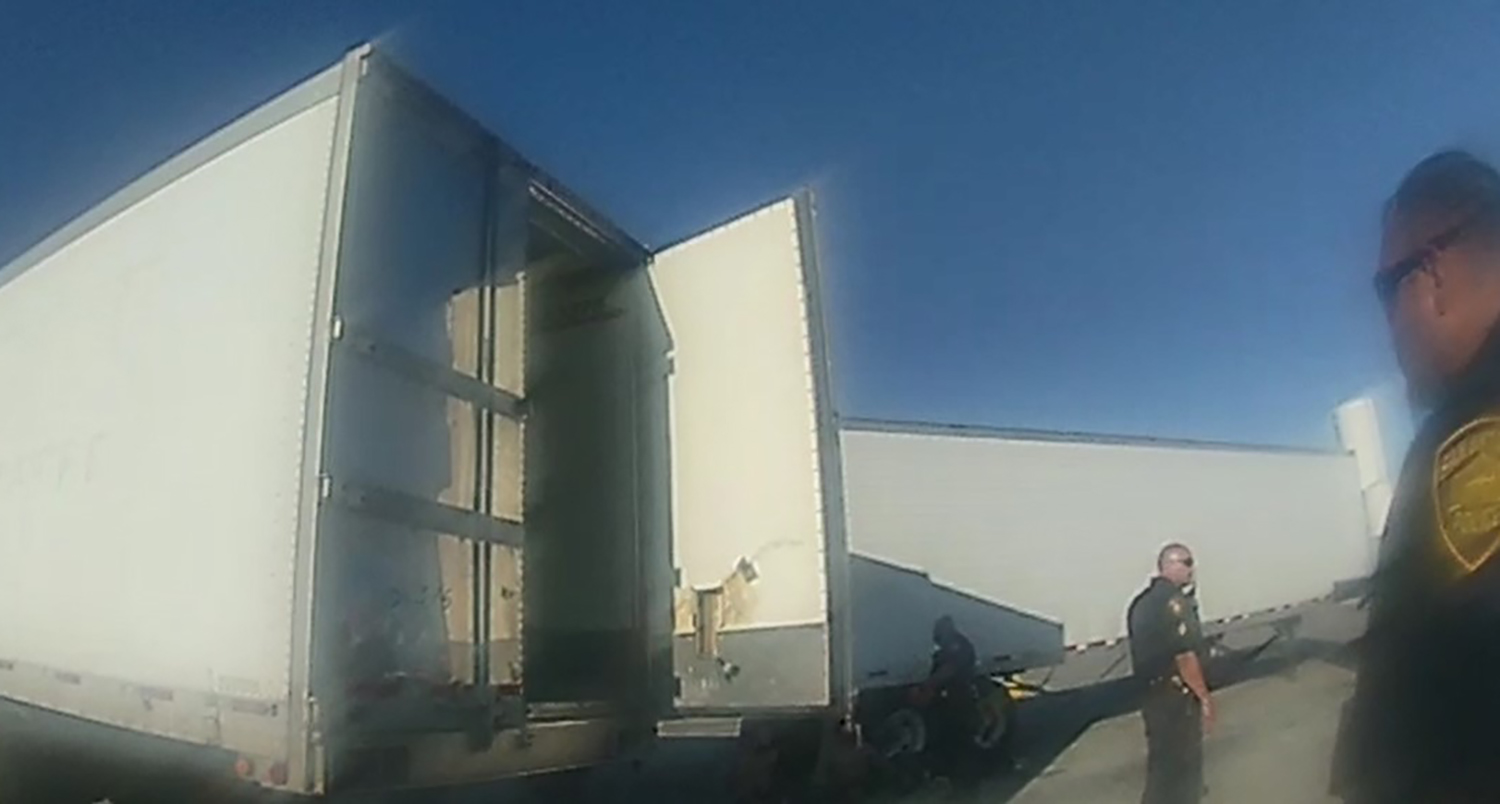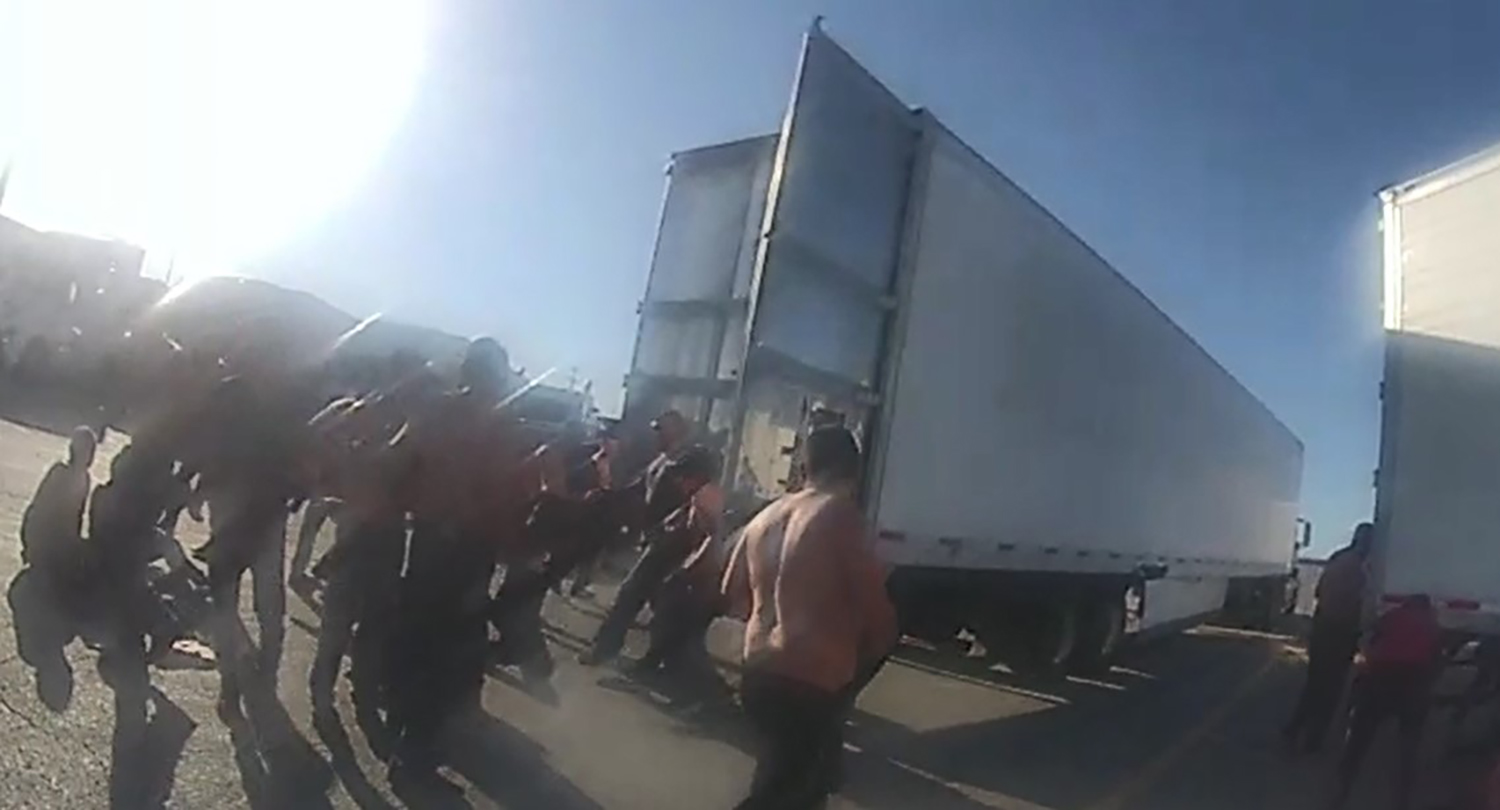Images reveal social media recruitment tactics of suspected human smugglers
A lead investigator explains the dangerous trend.
A collection of images exclusively obtained by ABC News details what law enforcement says are the recruitment and transportation tactics used by human smugglers to help move migrants across the southwest border and through U.S. cities.
The screen-captured images, provided by Homeland Security Investigations (HSI), show suspected smuggling organizers posting what are essentially recruitment ads asking for "serious drivers" in states along the border and portray the task as a test of manhood.
Investigators said these tactics are aimed at recruiting young people in often rural areas looking to make some quick cash.
Multiple ads, as seen in the images, show large stacks of cash and claim to be offering drivers as much as $10,000 to drive between various places in Texas including Eagle Pass, San Antonio, Dallas and Austin.


"We've seen a very disturbing trend over the past few years –- it's the use of social media to recruit young people," HSI lead agent Craig Larrabee told ABC News. "Young people on social media in big cities, whether it be Dallas or San Antonio or Austin -- recruited on social media … they're told to go out into places they've never been in very difficult situations on ranches and desolate roads and told to pick up people and drive them north."
Larrabee said law enforcement often finds mangled vehicles crashed on the side of poorly lit back roads.
"If approached by law enforcement, they're often told to try to flee and that's disastrous too," Larrabee said. "These kids are young, maybe first-year drivers -- sometimes they don't even have a driver's license. But they certainly very often do not have experience driving on ranch roads."
Human smuggling investigations require hundreds of hours and a deep dive into what are often vast networks of organized criminals seeking to exploit migrants, Larrabee said. As the HSI special agent in charge for San Antonio, Larrabee oversees the largest single region in the country for investigating human smuggling, which includes 500 miles of Texas-Mexico border.
HSI, a division of Immigration and Customs Enforcement (ICE), is the country's principal agency for tracking down smugglers and delivering justice and helping those who find themselves in the throes of illicit operations run by transnational criminal organizations with immense resources. The government believes the stakes have never been higher for ICE HSI as the Biden administration attempts to reign in illegal immigration across the southwest while protecting victims fleeing persecution.


The scope and sophistication of smuggling operations has ramped up exponentially in recent years, according to Homeland Security officials. Fifteen to 20 years ago it was common to find family-operated smuggling rings charging $2,000-3000 per migrant, Larrabee said. But now, much larger organizations are charging upwards of $8,000.
"That's a huge amount of money," Larrabee said. "Now, that money is spread out among many different people in the organization -- but those numbers continue to go up depending on where you're coming from too."
Larrabee said the scale of individual smuggling attempts has increased, with drivers using tractor trailers to move large groups of people at one time.
"If you can put 200 people in the back of a tractor trailer in one run, that's gonna make you a lot more money [than] to try to find multiple drivers and smaller vehicles, which may be safer in some cases," Larrabee said.

ICE HSI, along with a variety of law enforcement partners, is responsible for investigating the San Antonio tractor trailer incident earlier this year where 53 people were found dead.
Authorities said it was the largest mass casualty incident ever connected to human smuggling in the U.S. Multiple people have since been charged.

While details remain limited due to the ongoing nature of the investigation, Larrabee said, investigators employ a victim-centered approach when sorting out the level of complicity within a human smuggling scheme. Though migrants may initially agree and pay smugglers to transport them, they are often exploited or physically harmed along the way.
"It's not always obvious," he said. "But our approach is to make sure that we're looking for victims."


Additional photos and body camera images obtained by ABC News show a thwarted smuggling effort in which 41 migrants were found at a truck stop in San Antonio last year. As non-citizens, all 41 were arrested and processed by Homeland Security officials.




